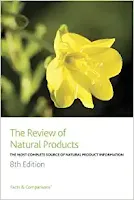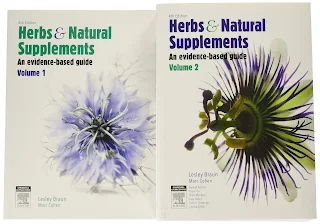Herbs and Supplements
Introduction
I stumbled upon this product on a pharmacy shelf and wondered what it was for.
Disclaimer: I am not reviewing this product, but rather discussing herbs and supplements in general. Although I have lived in Malaysia for over 20 years, the only Malay herbs that I heard of is Tongkat Ali.
As a product of Western medical training, I have limited knowledge of herbs.
- My university education and personal readings have revealed that many herbs lack substantial evidence or large-scale clinical trials to support their use for specific indications.
- The situation is further complicated by the wide range of doses and preparations used in clinical studies.
A quick question: Do you know the common dosage of St. John's Wort or its typical uses?
- In university, we often highlighted St. John's Wort when discussing potential drug-herb interactions, but rarely delved into the supporting evidence.
However, at community pharmacies, customers frequently ask about supplements, such as:
- Are there any supplements that can improve blood circulation?
- I heard fenugreek is helpful for diabetes management. Is that true?
- I am experiencing prostate problems due to aging. Are there any supplements I can take?
- Is it true that calcium supplementation increases the risk of cardiovascular diseases?
The list of questions goes on.
Reference
In terms of evidence-based sources for concise summaries of herbs and supplements, here are a few FREE online references that I have found helpful.
- Blackmores Institute - Provides interactions guide and fact sheets on specific ingredients and health conditions.
- About Herbs by Memorial Sloan Kettering Cancer Center - Offers evidence-based information on traditional and proven uses.
- Herb at a Glance by US National Center for Complementary and Integrative Health - Provides brief fact sheets with basic information about specific herbs.
For more in-depth information, I recommend the following natural product textbooks.
- Review of Natural Products
- Covering over 400 fully referenced, peer-reviewed monographs.
- The same content of this book is presented in Lexicomp's Natural Product database.
- Herbs and Natural Supplements
- Volume 1 provides a foundation of knowledge in the clinical practice of complementary medicine.
- Volume 2 offers current, evidence-based monographs on the 132 most popular herbs, nutrients and food supplements.
Regulations
- Under the rules for dietary supplements, manufacturers do not have to seek FDA approval before selling dietary supplements and can claim products address a nutrient deficiency, support health or are linked to body functions (but NOT allowed to make a specific medical claim).
- FDA requires the labels of all herbal supplements to include the complete list of ingredients and manufacturers must follow good manufacturing practices (GMP) to ensure that supplements are processed consistently and meet quality standards.
In Australia, medicines approved for supply display an ARTG number.
- The ARTG number starts with "AUST" and is followed by an "R", "L" or "L(A)".
- Medicines with AUST R and AUST L(A) are assessed for efficacy, while those with AUST L are not.
- In other words, for herbs or supplements to be marketed with AUST L, they are only need to be ensured for quality and safety.
Personal Stance
My stance on the use of herbs and supplements is complex.
- While I do not believe that everything natural is inherently good or safe, I also do not think that all herbs are useless.
- In line with the principle of "first, do no harm", I suggest that for minor conditions like pre-diabetes, herbs and supplements can be considered, especially when combined with lifestyle changes.
- However, for serious conditions (such as stroke, myocardial infarction or cancer), please seek immediate medical attention.
Before starting any supplements, consult with your healthcare professional to discuss potential precautions or interactions with your current medications. Some examples are listed here:
- Bilberry may inhibit platelet aggregation and potentially has an anticoagulant effect.
- Increased hypoglycaemic effect when bitter melon is coadministered with some oral antidiabetic agents has been demonstrated in animals.
- There are concerns on black cohosh regarding rare, but serious, hepatotoxicity. Signs of liver toxicity include nausea, fatigue, loss of appetite, abdominal pain, itchy skin, pale stools, dark urine and jaundice.
- Coenzyme Q-10 may diminish or enhance the anticoagulant effect of vitamin K antagonist (e.g. warfarin).
- Cranberry may enhance the effects of vitamin K antagonists. Monitor therapy.
- Evening primrose oil was previously suspected to lower the seizure threshold in schizophrenic patients; however, this is now disputed.
- Fenugreek has been documented to have uterine stimulant effects and has been used in traditional medicine to induce childbirth. Avoid in pregnancy.
- Feverfew not to be used during pregnancy since it can cause uterine contractions. May increase the effects of antiplatelets.
- Garlic may enhance the effects of antiplatelet agents, anticoagulants and antidiabetic drugs such as metformin.
- Ginkgo should be used with caution in populations with bleeding risks. Case reports of increased bleeding risk exist, but clinical trials have found no effect on platelet function.
- Ginseng has mixed effects on blood pressure and is generally advised to be avoided by individuals with high or low blood pressure concerns.
- As glucosamine is derived from the exoskeletons of shellfish, caution should be used in patients with a shellfish allergy.
- Use caution when administering glucosamine and chondroitin to individuals with uncontrolled diabetes.
- Kava supplements have been linked to risk of severe liver injury (could be fatal).
- Although no recent clinical data has been published, the German Commission E monograph concluded that the linden flower is cardiotoxic.
- Milk thistle may lower blood sugar levels in people with type 2 diabetes.
- Caution is warranted for passion flower with concomitant consumption of CNS-active medicines and coadministration of drugs that prolong QT interval.
- Red yeast rice should not be taken if one already started on statins (cholesterol lowering medications).
- Saw palmetto may enhance the adverse/toxic effect of oestrogen derivatives and the anticoagulant effect of warfarin.
- Senna is contraindicated in patients with intestinal obstruction, ulcerative colitis, appendicitis, and Crohn disease. Senna is not recommended for children younger than 2 years.
- St. John's wort has been reported to interact with numerous drugs. Also, it may cause increased sensitivity to sunlight, especially when taken in large doses.
- Turmeric should not be used in patients with gallstones or bile duct or passage obstruction. Avoid use during pregnancy and lactation because of emmenagogue and uterine stimulant effects.
To ensure safety and effectiveness, purchase supplements from reputable brands and sources, such as pharmacies.
- Be wary of heavily marketed supplements on social media or those sold at suspiciously low prices online.
- These may be deceptive tactics designed to entice purchases but could result in ineffective or adulterated products.
Summary
While supplements are not a guaranteed cure, you may come across anecdotal reports of individuals who have found relief from their conditions through supplementation.
- For instance, in cases of knee osteoarthritis, exploring supplementation options can be a worthwhile consideration before pursuing more invasive surgical interventions (such as total knee replacement) with potential complications and limitations.
External Links
- Blackmores Institute
- 'Unsafe' Nutraceuticals Products on the Internet: The Need for Stricter Regulation in Malaysia, 2017
- What risks do herbal products pose to the Australian community?, 2017
- Protecting Consumers from Misleading Online Advertisement for Herbal and Traditional Medicines in Malaysia: Are the Laws Sufficient?, 2018
- Understanding complementary medicines, 2024
- Herbs at a Glance
- Medline Plus - Herb
- Memorial Sloan Kettering Cancer Center - Herb
- University of Rochester Medical Center - Herb






Comments
Post a Comment